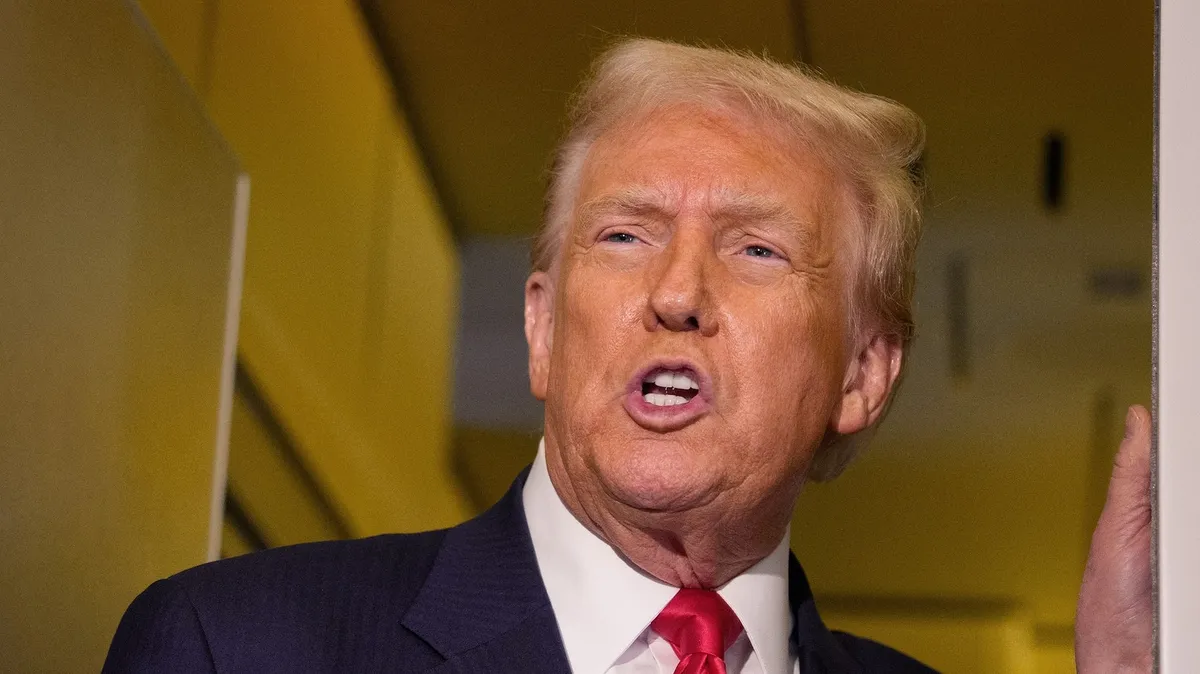
In a recent statement, President Donald Trump announced that he has directed the Pentagon to prepare for potential military action in Nigeria. He emphasized that the United States could execute a military intervention to combat the ongoing violence against Christians in the country. Trump stated that if the Nigerian government continues to permit the killing of Christians, the U.S. may halt all forms of aid and assistance, and potentially engage in military action against those responsible for these atrocities.
In his post on a social media platform, Trump asserted, "If the Nigerian Government continues to allow the killing of Christians, the U.S.A. will immediately stop all aid and assistance to Nigeria, and may very well go into that now disgraced country, guns-a-blazing, to completely wipe out the Islamic Terrorists who are committing these horrible atrocities." He further instructed the Department of War to be ready for possible military engagement, urging the Nigerian government to act swiftly.
On Friday, Trump officially designated Nigeria as a country of particular concern, a designation issued by the U.S. State Department for nations that exhibit severe violations of religious freedom. He highlighted the dire situation, asserting that Christianity is facing an "existential threat" in Nigeria. In light of these developments, Trump has requested a comprehensive report from Rep. Riley Moore, R-W.V., and Rep. Tom Cole, R-Okla., as well as the House Appropriations Committee, regarding the matter of religious violence in Nigeria.
Nigeria, with a population exceeding 230 million, is roughly split between Muslims and Christians. The violence in the region has escalated, with reports from Amnesty International indicating near-daily attacks by armed groups and bandits, particularly in northern Nigeria. The organization has described the rising death toll as a humanitarian crisis. It is important to note that the patterns of violence are complex, targeting not only Christians but also other religious groups, ethnic communities, and individuals based on their livelihoods.
In response to Trump’s statements, Nigerian President Bola Ahmed Tinubu refuted the characterization of Nigeria as a religiously intolerant nation. He argued that this portrayal does not accurately reflect the nation's realities or the government's dedicated efforts to protect the freedom of religion and belief for all its citizens. Tinubu emphasized that his administration is committed to fostering open dialogue with both Christian and Muslim leaders while addressing security challenges that impact all Nigerians.
The Nigerian President also expressed his commitment to collaborating with the United States and the international community to enhance understanding and cooperation in protecting communities of all faiths. This commitment comes at a time when Nigeria is grappling with a resurgence of the homegrown Islamic militant group Boko Haram, which has been implicated in several violent incidents, including a deadly attack in September that claimed numerous lives, as reported by the Associated Press.
As the situation in Nigeria continues to evolve, the international community is watching closely. Trump's commitment to addressing the violence against Christians and the broader implications for religious freedom in Nigeria raises significant questions about the future of U.S.-Nigeria relations and the potential for military intervention. With both governments expressing their views, it remains to be seen how this complex issue will unfold in the coming months.